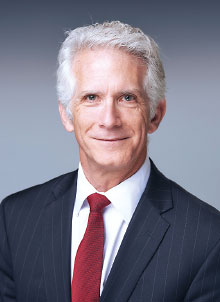When
Keris Jan Myrick, M.S., M.B.A., moved to the Washington, D.C., area for a new job, she tried to find a psychiatrist who could help her manage her schizophrenia. She went through her insurer’s provider directory and called the listed numbers, but she was met with dial tones, notices that the psychiatrists were no longer accepting patients, or confusion from office staff who claimed the doctor listed in the directory had never worked there.
Using the directory was like looking for a needle in a haystack, Myrick told the Senate Committee on Finance. “Lots of hay, very few needles, and none that could stitch together the needs of my schizophrenia garment.” Myrick is the vice president of partnerships at Inseparable, a nonprofit group advocating for policies that reflect the belief that mental and physical health are inseparable.
The committee held a
hearing in early May on the prevalence of ghost insurance networks and the barriers they present to patients seeking mental health care. The term ghost networks refers to insurance networks that inaccurately or misleadingly list health care professionals in their directories for various reasons—they may not be accepting new patients or are no longer accepting that insurance.
“Ghost networks affect private sector health plans purchased by individuals and employers and public plans like Medicaid and Medicare Advantage,” Robert Trestman, Ph.D., M.D., told the committee. Trestman is chair of APA’s Council on Healthcare Systems and Financing and professor and chair of psychiatry and behavioral medicine at the Carilion Clinic and the Virginia Tech Carilion School of Medicine.
Trestman explained how for patients who are largely healthy and well educated, encountering inaccurate directories on insurance websites can be frustrating. “But for people experiencing significant mental illness or substance use disorders, the process, at best, is demoralizing,” he continued. “At worst, it is a setup for clinical deterioration and a preventable crisis. Many are already experiencing profound feelings of worthlessness, grief from loss or trauma, and/or the impact of substance use. Patients have shared with me that they felt themselves repeatedly rejected and that, somehow, the fact that they couldn’t find a provider was their fault. Some give up looking for care.”
Trestman explained that for health professionals, keeping their credentialing with insurers updated is time consuming and expensive. Trestman used Carilion as an example. The system has multiple full-time employees doing nothing but maintaining the health professionals’ credentials with insurance companies and public payers. “This is a burden that insurance companies, I believe, should bear, not those of us trying to provide desperately needed care,” Trestman said.
In his
written testimony, Trestman pointed to a 2019
report by the Council for Affordable Quality Healthcare that found that the annual administrative cost for physician practices to send directory updates to insurers is $2.76 billion nationwide.
During his testimony, and in response to questions from members of Congress, Trestman spoke about the importance of improving the accuracy of insurance directories, increasing mental health care reimbursement rates, addressing workforce shortages (especially in rural areas), and spreading messages about the positive impact of expanded telehealth on access to care in rural and underserved areas and the benefits of integrated care.
Sen. John Cornyn (R-Texas) asked Trestman about the APA-supported COMPLETE (Connecting Our Medical Providers with Links to Expanded, Tailored, and Effective) Care Act, which Cornyn
introduced along with Sen. Catherine Cortez Masto (D-Nev.). The bill would increase Medicare payment rates for behavioral health integration services to help health care professionals with the startup costs of implementing integrated care models.
Trestman said the legislation is critical. He has worked with people around the country who have implemented collaborative care, and he has tried to implement it in his own health system, he said. “It’s challenging, and frankly the challenge isn’t so much on the side of psychiatry,” he said. “The challenge is on the side of primary care.” The COMPLETE Care Act would make a huge difference because it supports primary care offices, especially in those first important years of implementing integrated care.
In his opening remarks, Sen. Ron Wyden (D-Ore.), the Senate Finance Committee’s chair, said that when insurers host ghost networks, “they are selling health coverage under false pretenses.” In any other business, he said, if a service doesn’t meet expectations, a consumer can ask for a refund.
“In a moment of national crisis about mental health, with the problem growing at such a rapid rate, the widespread existence of ghost networks is unacceptable,” Wyden said. “When somebody is worried about their mental health or the mental health of a loved one, it’s hard to work up the courage to step up and try to coordinate their care. And if they can’t get help, the last thing they need from a big insurance company is a symphony of ‘please hold’ music when they call nonworking numbers and rejection.” ■

